Chinese academic: No country can mediate the Israeli-Palestinian conflict
In the absence of a solution to the Palestinian issue, the Palestine-Israel peace process will be at a stalemate, unless Israel is able to completely destroy Hamas and other Palestinian anti-Israel forces. In the short term, Israel's stance on Palestine, especially the Gaza Strip, is likely to harden, says Chinese academic Fan Hongda.
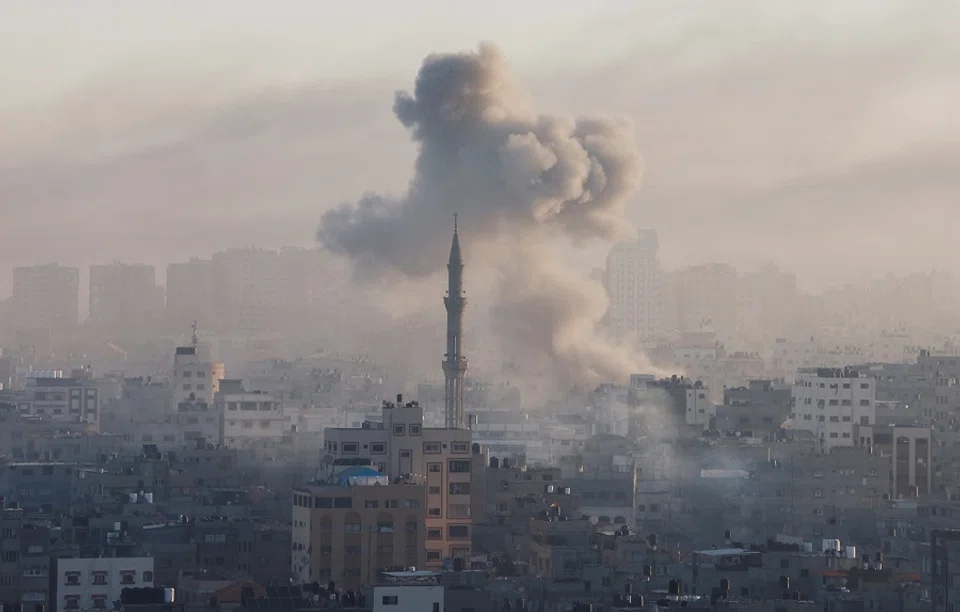
On the early morning of 7 October, local time, a militant group from the Gaza Strip launched a surprise military attack on Israel, and in a rare move, entered Israeli territory. The violent attack on attendees of a music festival, military bases and civilian areas, caused more than 700 deaths in Israel and more than a hundred hostages were taken back to Gaza.
Victory on 7 October
Clearly, this attack is very different from past Gaza-Israel conflicts and wars. It is the most serious attack from external forces on Israel since the 1973 Yom Kippur War. Israel has since declared that it is at war - another Gaza-Israel war has erupted.
The goal of the Gaza militant forces this time around is clear: to infiltrate into Israel, indiscriminately attack all on sight, and bring as many hostages from Israel back to Gaza as possible, so as to strengthen its bargaining chips in the coming wars and negotiations. Also, with a partial and short-term victory in their battle against Israel, they can demonstrate their growing strength and capability, and construct a more attractive image in the eyes of the Palestinian people. Of course, this would also leave an indelible wound for the Israelis.
Gaza militant groups have become more familiar with the conditions of residents in the small Gaza Strip, thus increasingly constricting the space for Israeli spies to operate there.
There are several reasons why the Gaza militant forces found military victory on 7 October and why Israel suffered such heavy losses, which must be noted:
First, the numerous Gaza-Israel conflicts and even wars over the years have allowed Hamas and other anti-Israeli forces to gain more battle experience. Second, past Gaza-Israel conflicts have shown that Gaza militant groups' military offensive capabilities have grown increasingly stronger. Third, Gaza has been under strict Israeli blockade and the Gaza militant groups have become more familiar with the conditions of residents in the small Gaza Strip, thus increasingly constricting the space for Israeli spies to operate there.
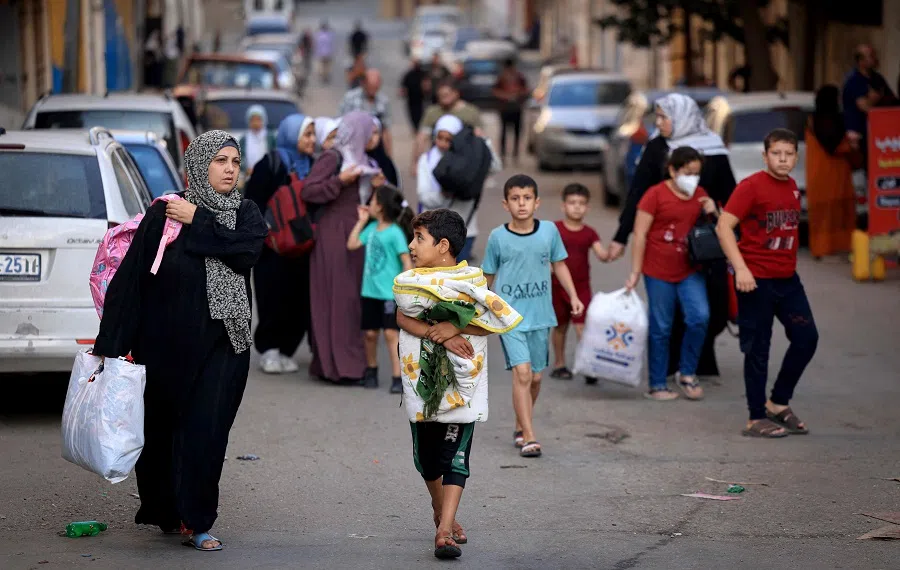
Fourth, in the past year, Israel's judicial reforms have led to severe internal division and infighting, which seriously eroded the Israeli intelligence and military forces' capabilities and willingness to act.
... international factors that are beneficial to Hamas have surfaced. Thus, Hamas would believe that in spite of its attack on Israel, they would not face a retaliation that would wipe them out.
Less fear of retaliation
I am inclined to see this proactive military action against Israel by Gaza as not simply an issue of a Palestine-Israel conflict - it embodies a relatively clear sense of the international influences from within and outside of the Middle East.
In recent years, Middle Eastern countries clearly have increasingly sought rapprochement with each other, and the impact of this on the region is becoming more apparent, with each major country in the Middle East impacted differently.
Under such circumstances, even though the Gaza militant forces are aware that they would face heavy retaliation from Israel, due to their plan of taking hostages, and coupled with a reshuffling in the situation in the Middle East and the world, international factors that are beneficial to Hamas have surfaced. Thus, Hamas would believe that in spite of its attack on Israel, they would not face a retaliation that would wipe them out.
Although the 7 October surprise attack of Israel by Gaza and the 1973 sudden incursion of Israel by Egypt are very similar, it is imperative to note that Hamas is not Egypt, and Gaza also cannot put continuous military pressure on Israel.
In the absence of a solution to the Palestinian issue, the Palestine-Israel peace process will be at a stalemate, unless Israel is able to completely destroy Hamas and other Palestinian anti-Israel forces.
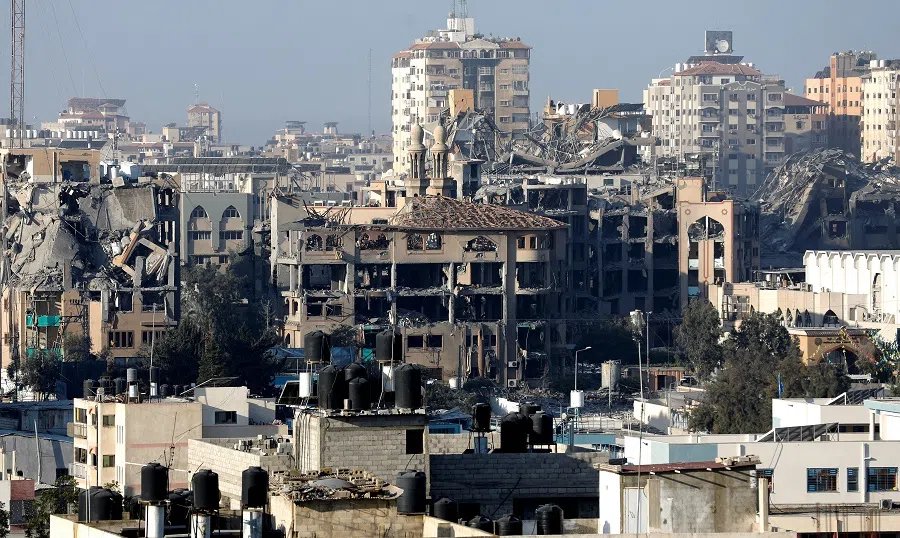
Indeed, even as Israel retaliates against Gaza, it will take into consideration the lives of more than a hundred hostages. This will hamper the extent of Israel's retaliation. Nonetheless, Israel's military might is still sufficient to deal a heavy blow against Hamas and other anti-Israeli forces from Gaza. Moreover, Israel would look to mount sustained efforts to eradicate Gaza's militant forces. The people in the Gaza Strip will certainly face even more dire conditions, at least in the short term.
Gaza and Israel have been embroiled in decades of conflict, and tragedies have befallen both sides again and again. In the absence of a solution to the Palestinian issue, the Palestine-Israel peace process will be at a stalemate, unless Israel is able to completely destroy Hamas and other Palestinian anti-Israel forces. Hence, Hamas's influence will most likely grow among Palestinians with its aggressive anti-Israel stance, and it will remain a security challenge to Israel.
No country can mediate
I believe that the Palestinian issue, which can be traced back to the 19th century, has undergone three development stages: one, the struggle for land between Jews and Palestinians; two, the Arab-Israeli wars since Israel declared independence; and three, the Palestinians' current demand for the return of their occupied land and to establish their own independent state.
At present, the mainstream opinion held by the United Nations and international society on the Palestinian issue is still the "two-state solution" and the creation of an independent Palestine. Thus, the Palestinian issue must first be resolved before the tragic Gaza-Israel conflict can be fundamentally stopped.
...how can a deeply politically divided Palestine negotiate with Israel? At the same time, how can Israel, which is deeply divided over the Palestinian issue, accept a two-state solution that requires giving up a massive amount of land?
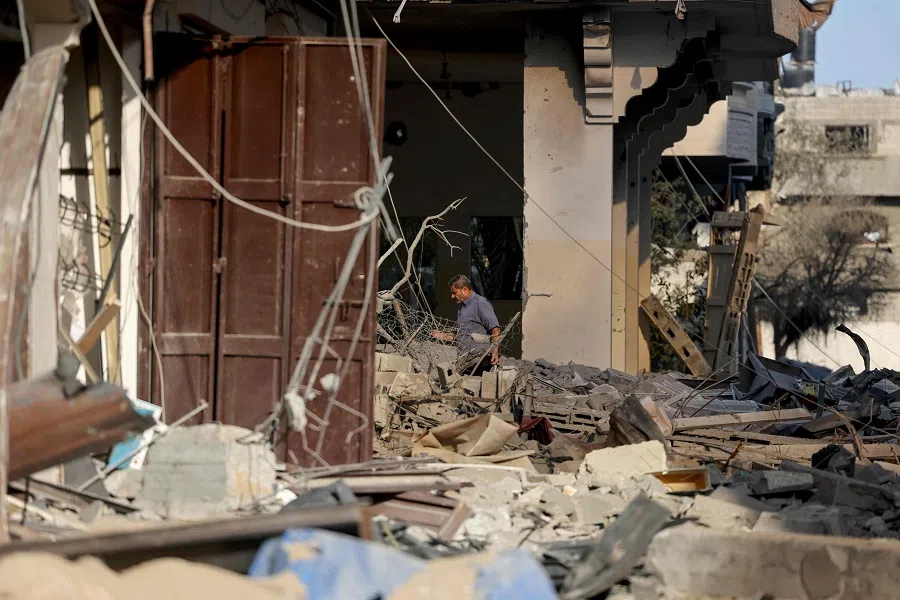
After Saudi Arabia and Iran agreed to restore full diplomatic relations in Beijing in March 2023, there has been occasional talk about China possibly mediating the Palestine-Israel conflict as well.
Indeed, reconciliation has been the basic wish of Middle Eastern countries and their people for years. Under the new global and regional situation, this wish is gradually and partially being fulfilled, and a trend of reconciliation has emerged. But frankly, I do not think that any external country has the ability to fundamentally and successfully mediate the Palestine-Israel conflict for now.
In terms of the direct parties involved, Israel and Palestine do not yet have the foundation to resolve their differences. First and foremost, how can a deeply politically divided Palestine negotiate with Israel? At the same time, how can Israel, which is deeply divided over the Palestinian issue, accept a two-state solution that requires giving up a massive amount of land?
In the absence of a basis for reconciliation in the first place, and having experienced a national tragedy on 7 October, Israel will certainly toughen its stance on Palestine, especially the Gaza Strip, leaving even less room for Palestine-Israel negotiations, at least in the short term.
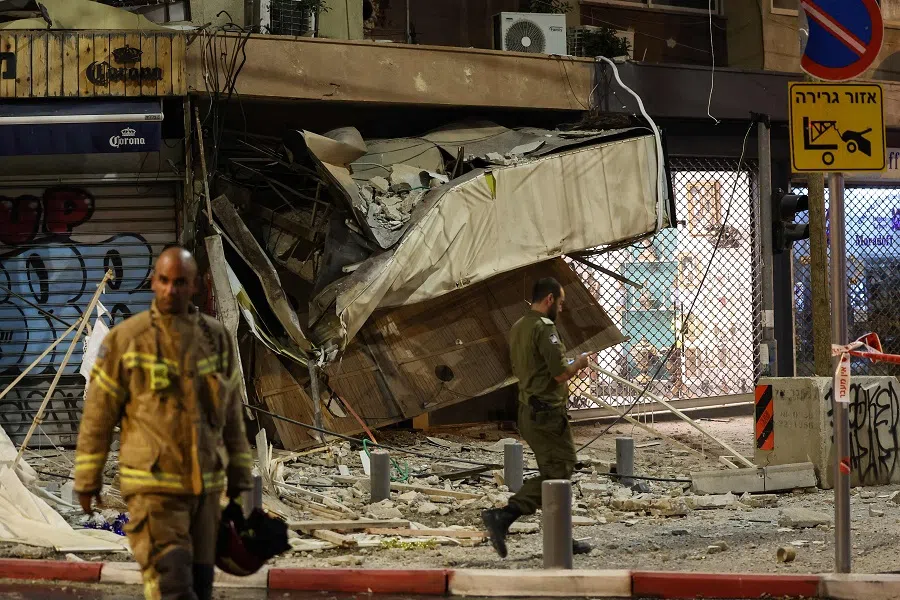
Furthermore, such a development of the Palestinian issue will also inevitably affect the process of normalisation of Israel-Saudi Arabia relations. After the current Gaza-Israel war broke out, Saudi Arabia officially froze all negotiations to normalise relations with Israel. The wave of reconciliation in the Middle East, which has gained momentum in recent years, will suffer a temporary setback as a result of this war.
Notably, the world is once again divided over the Palestinian issue as countries reacted differently after Gaza violently attacked Israel on 7 October. This is what happens each time a Palestine-Israel conflict breaks out.
As earlier mentioned, this severe escalation of the Palestine-Israel conflict has taken on a new hue that must be taken into consideration when assessing and responding to the current Gaza-Israel war - it was launched by Hamas on the Palestinian side, who then entered Israel to carry out acts of violence against civilians. Premised on the fundamental international position of the two-state solution to resolve the Palestinian issue, it is necessary to perceive and frame the current Gaza-Israel war more appropriately.
This article was first published in Lianhe Zaobao as "不一样的以巴冲突".





